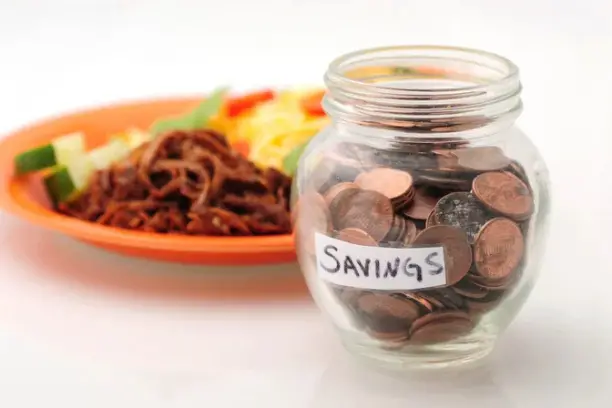Food waste is a pressing issue that affects not only our wallets but also the environment. The Food and Agriculture Organization of the United Nations (FAO) estimates that around one-third of all food produced globally goes to waste. This means that approximately 1.3 billion tons of food are wasted each year, while millions of people around the world go hungry. Food waste also contributes to greenhouse gas emissions, which exacerbate climate change.
One way to combat food waste is by adopting the habits of people who never waste food. These habits are simple, practical, and easy to implement, and they can help reduce food waste and save you money. In this post, we will discuss five habits of people who never waste food, including planning ahead and shopping smart, meal planning and preparation, mindful consumption, reducing food waste, and the financial benefits of reducing food waste.
By adopting these habits, you can not only reduce food waste and save money but also make a positive impact on the environment and contribute to the fight against hunger. So, let’s dive into these habits and see how we can make a difference.
I. Plan ahead and shop smart.
One of the key habits of people who never waste food is planning ahead and shopping smart. This involves making a grocery list, avoiding impulse buys, shopping in bulk, and storing food properly. By following these simple steps, you can reduce food waste and save money on groceries.
- Make a grocery list: Before you go grocery shopping, take some time to plan out what you need. Create a checklist of the things you need for the week and ensure that you adhere to it. This will help you avoid buying items that you don’t need, which can lead to food waste and unnecessary spending.
- Avoid impulse buys: It’s easy to get tempted by sales and promotions, but try to resist the urge to buy items that are not on your list. These impulse buys can often go to waste, especially if they are perishable items that you don’t end up using.
- Shop in bulk: Purchasing items in large quantities can be an effective method to reduce expenses on groceries, particularly for items that do not spoil quickly, such as canned goods, pasta, and rice. Just make sure that you have enough storage space at home to store these items properly.
- Store food properly: Proper food storage is essential for preventing food waste. Make sure that perishable items like fruits, vegetables, and meat are stored in the right conditions to prolong their shelf life. For example, store fruits and vegetables in the crisper drawer of your fridge, and wrap meat tightly in plastic wrap before storing it in the fridge or freezer.
II. Plan Meals
Another habit of people who never waste food is meal planning and preparation. This involves planning meals around what you have, using leftovers creatively, freezing food that won’t be eaten in time, and cooking in batches. By adopting these habits, you can make the most of the food you have and avoid wasting it.
- Plan meals around what you have: Before you plan your meals for the week, take a look at what you already have in your fridge and pantry. Use those ingredients as a starting point for your meals, and try to incorporate them into your recipes. By doing so, you can avoid purchasing unnecessary items and minimize the amount of food that goes to waste.
- Use leftovers creatively: Leftovers can often go to waste if they are not used up in time. Instead of throwing them away, try to use them creatively in your next meal. For instance, you can use leftover chicken to make a sandwich or a salad, and you can use leftover vegetables to make a stir-fry or soup.
- Freeze food that won’t be eaten in time: If you have food that won’t be eaten in time, consider freezing it for later use. This is especially useful for items like bread, meat, and vegetables. Just make sure to label and date the items before freezing them, so you know when they were frozen.
- Cook in batches: Cooking in batches can be a great way to save time and reduce food waste. When you cook, try to make enough for multiple meals and freeze the leftovers for later use. This will not only save you time but also ensure that you have a backup meal in case you run out of time or ideas.
III. Consumption Mindfully:
Mindful consumption is another important habit of people who never waste food. This involves paying attention to expiration dates, practicing portion control, using all parts of the food, and being creative with substitutions. By being mindful of what you consume, you can reduce food waste and save money on groceries.
- Pay attention to expiration dates: Before you buy food, check the expiration date to ensure that you have enough time to consume it. And, once you have the food at home, keep track of its expiration date and use it before it goes bad. This will prevent food waste and ensure that you are consuming safe and fresh food.
- Practice portion control: One of the main reasons for food waste is overeating and throwing away leftovers. To avoid this, practice portion control by serving yourself smaller portions and saving leftovers for later. This will not only reduce food waste but also promote a healthier lifestyle.
- Use all parts of the food: Many parts of the food that are often discarded, such as carrot tops or broccoli stems, can actually be used in cooking. Try to find creative ways to use all parts of the food, and minimize waste.
- Be creative with substitutions: If you don’t have a certain ingredient on hand, try to find a substitute instead of going to the store to buy it. For example, you can use yogurt instead of sour cream, or applesauce instead of oil in baking. This will not only reduce food waste but also save you money on unnecessary grocery trips.
IV. Reduce food waste:
Another important habit to adopt from people who never waste food is to actively find ways to reduce food waste. This can be done by composting, donating excess food, sharing with neighbors or friends, and using food scraps for DIY projects. By reducing food waste, you not only save money but also help the environment by reducing the amount of waste sent to landfills.
- Compost: If you have food scraps or other organic waste, consider composting them instead of throwing them away. This will not only reduce the amount of waste sent to landfills but also create nutrient-rich soil for your garden.
- Donate extra food: If you have extra food that you are unable to eat, think about donating it to a nearby food bank or shelter. This will not only help those in need but also prevent the food from going to waste.
- Share with neighbors or friends: If you have excess food but no food bank or shelter nearby, consider sharing it with your neighbors or friends. This can be a great way to build community and prevent food waste.
- Use food scraps for DIY projects: Food scraps can be used for a variety of DIY projects, such as making vegetable stock or natural dyes. Get creative and find ways to use your food scraps instead of throwing them away.
V. Embrace Imperfect Foods:
One lesser-known habit of people who never waste food is embracing imperfect produce. One of the main reasons why perfectly good fruits and vegetables are often wasted is because they don’t meet the strict aesthetic standards of grocery stores and consumers. Imperfect produce refers to fruits and vegetables that may not look perfect but are still perfectly edible.
The reality is that these “imperfect” foods are just as nutritious and delicious as their perfect counterparts and can be purchased at a fraction of the cost. In recent years, there has been a growing movement to reduce food waste by embracing imperfect produce.
Many grocery stores now offer “ugly produce” sections or discounted prices for produce that is slightly blemished or misshapen. Some grocery stores have even started selling “rescued” produce, which is produce that is close to its expiration date or has been overstocked.
There are also subscription services that specialize in delivering imperfect produce straight to your doorstep. These services work with farmers to source produce that may not meet grocery store standards but is still perfectly edible. By subscribing to these services, you can save money on produce while also supporting farmers and reducing food waste.
Embracing imperfect foods is not only an excellent way to reduce food waste and save money, but it can also help shift our societal standards to be more accepting of imperfection. By choosing to purchase imperfect produce, we can help promote a more sustainable food system and reduce our environmental impact.
FINAL THOUGHTS
In conclusion, reducing food waste is a simple yet powerful way to make a positive impact on the environment, build stronger communities, and save money. By following the habits of people who never waste food, we can significantly reduce the amount of food we waste while improving our overall well-being.
When we plan ahead and shop smart, meal plan and prepare, consume mindfully, and actively find ways to reduce food waste, we not only save money on groceries and garbage fees but also create nutrient-rich soil for our gardens, help those in need, and prevent food from going to waste.
Therefore, let’s make a conscious effort to reduce food waste by adopting these habits into our daily lives. Together, we can create a more sustainable and healthier world for ourselves and future generations.🍀✨
Read More:
- 101 Frugal Tips to Save Money
- 7 Insanely Clever Ways to Save Money on Your Next Vacation.
- 9 Bad Money Habits That Are Keeping You Poor
- 9 Frugal Tips to Live Below Your Means
- The One Habit You Need to Save Money
- 10 Things You Need to Stop Buying to Save Money Fast






